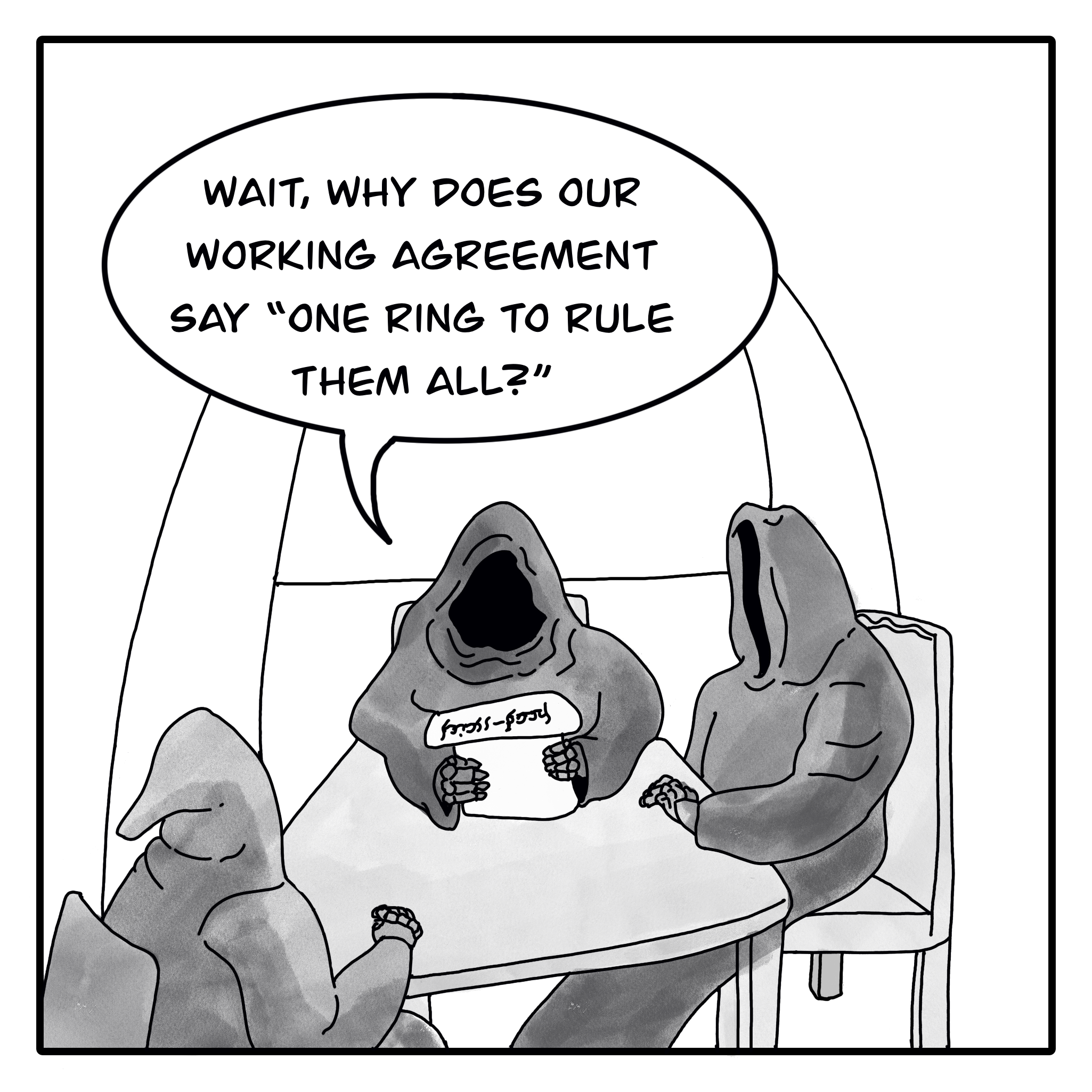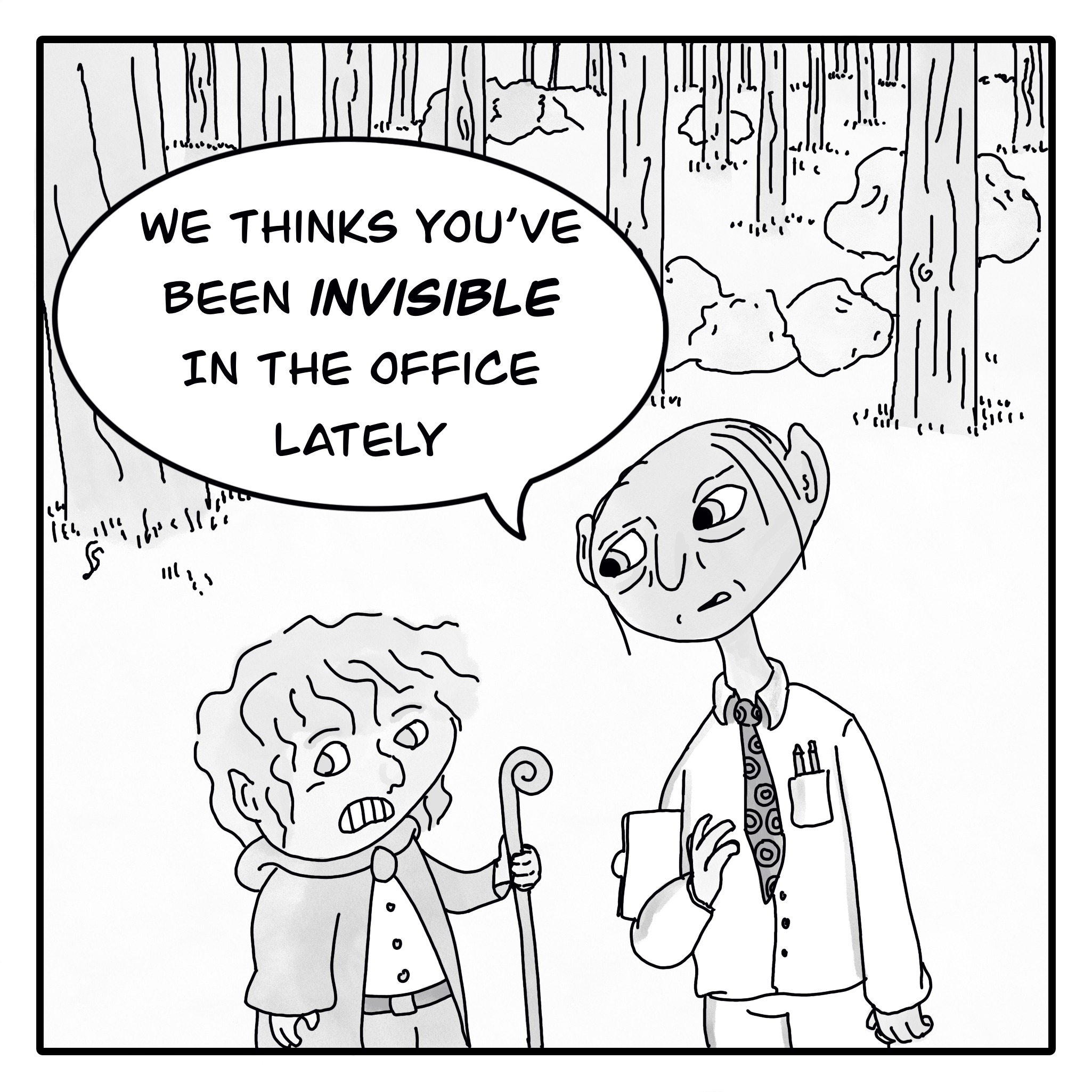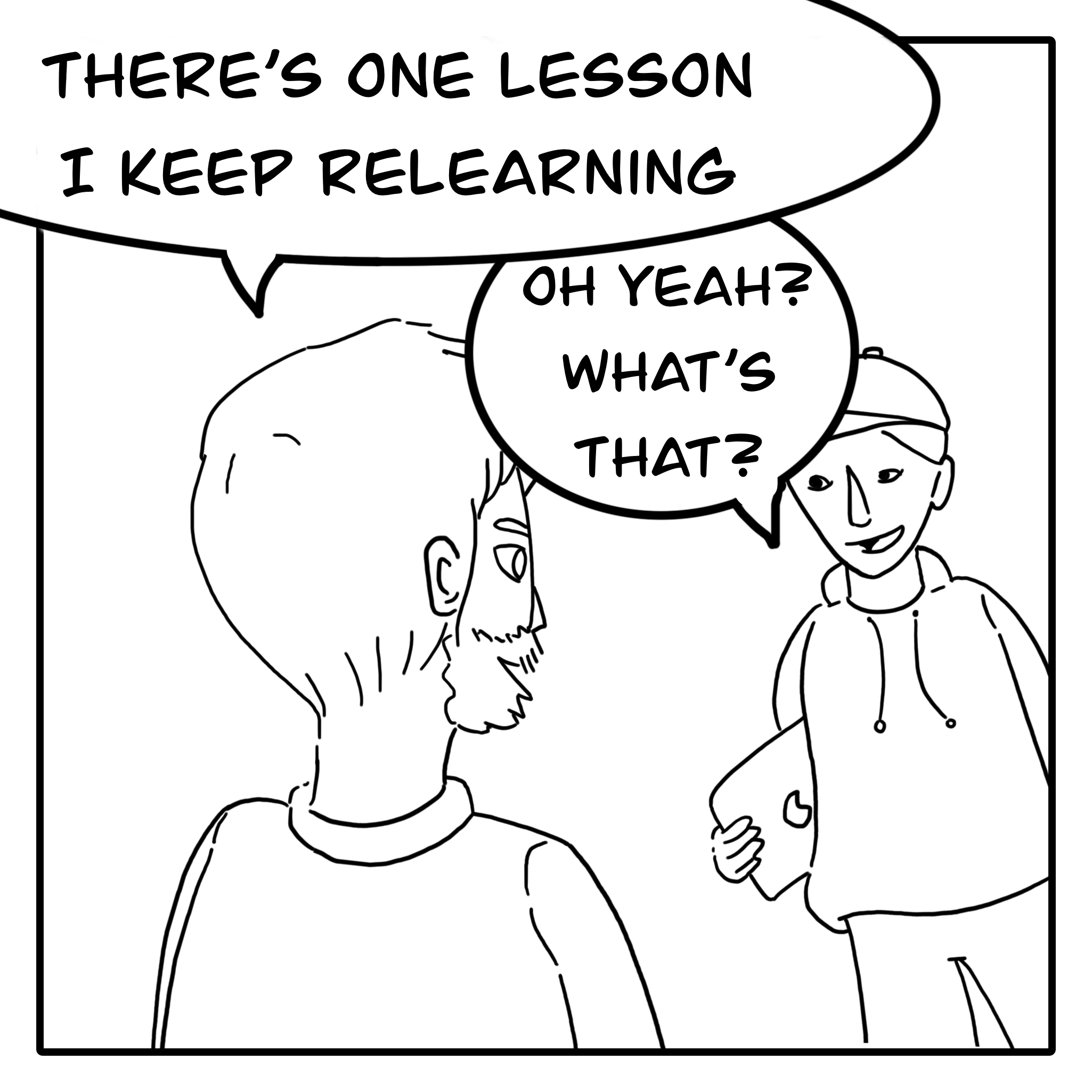Building Strong Teams: Trust from day one
Apr 30, 2024 #principles #safety #teamwork
First impressions matter on teams. Misinterpreting a new teammate's behavior can lead to misunderstandings and conflict. However, building a team inevitably involves a series of first impressions – there's a lot of room for missteps. We form impressions when we interview people, onboard them, and even when we join a new team ourselves.
So, how can we create a resilient process for integrating new team members? Success looks like this:
- New teammates feel empowered: They trust the team. They're comfortable speaking up when they encounter difficulties.
- The team thrives: There's minimal conflict and wasted effort (although some slowdown during onboarding is natural.)
Although many factors contribute to a good first impression, two tactics I use are (1) establishing consistency by writing a team working agreement and (2) creating space for vulnerability via initial one-on-one meetings.
The Team Working Agreement
New team members shouldn't have to learn everything by trial and error. Unclear expectations can make them feel unsafe. Everyone should feel free to learn the team's values openly.
For example, I once had a new team member wait three months to ask if weekend work was expected. On their previous team, it was the norm. I had to clarify that on our team, weekend work wasn't expected.
One way you can avoid this is simply write down your working agreement. Though working agreements really help new teammates soar, they also have the benefit of being increasing ownership for the existing team. Here's a template you're welcome to adapt:
Team Working Agreement (template)
Meeting time: 1hr.
Instructions: Facilitate a team discussion to complete a shared document. Encourage open sharing and participation. Discuss:
- Team Goals & Success: What are we trying to achieve? What does success look like? What's our mission statement?
- Team Values: What matters most to us?
- Communication: How will we communicate (chat, meetings, email)? How often? Do we have regular kickoffs, standups, or retrospectives?
- Availability: Are there specific times everyone is expected to be available? How flexible is this? Is it okay to contact teammates outside of core working hours? What expectations do we have for response time?
- Decision making: How are decisions made within a team? If disagreements arise, how are they resolved?
- Tools and tracking What tools are we using for project management and task tracking? Where is our documentation stored and maintained?
Update the agreement as the team evolves. If you join a team without a working agreement, you can use this same template as a starting point for topics to discuss.
The Introduction Meeting
Make your new teammates feel safe to be vulnerable. Whenever someone joins my team (or when I join a new team!), I hold introductory conversations where they can share both positive and negative aspects of themselves, and I do the same. Here's what we discuss:
The 1:1 Introduction (format)
Meeting time: 1hr
Instructions: Take turns answering these questions, actively listening with empathy (try to understand and validate their emotions). If a question takes more than 7 minutes, move the conversation forward.
- What's your proudest moment / experience in your career?
- What's a low point in your career? When have you felt most dragged by the experience of work?
- What's a superpower your teammates always say that you have?
- What's feedback you get from your teammates? -- something holding you back?
Benefits of these early conversations:
- Understanding Motivations: Sharing career highs and lows helps you understand what each other value most from work, enabling you to better meet each other's needs.
- Psychological Safety: Openly acknowledging everyone's imperfections creates a safe space to raise concerns. This psychological safety is crucial for high-performing teams
- Set the stage for empathetic listening: This sets the stage for future one-on-one conversations where colleagues feel comfortable sharing their stories.
This "introductory meeting" came about for me organically, inspired by hiring questions from "Topgrading". Topgrading was used by one of my previous teams, Crashlytics. Topgrading focuses more on career growth and self-awareness, while this introductory meeting is refocused on establishing a rapport.
These are just two of many tactics to affect first impressions. There's a lot more I'd love to write about (e.g., fun activities to integrate new teammates, good first projects, onboarding documentation best practices, etc...), and I'd love to hear what other folks are doing in this space. Feel free to share a comment below.





